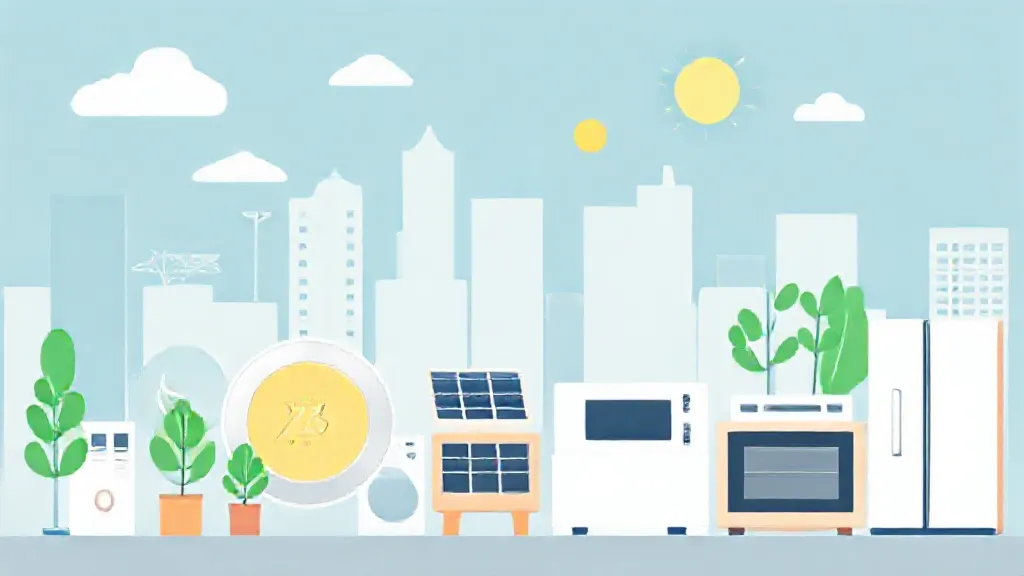In an era marked by rapid technological advancements, the quest for energy efficiency has become paramount. Energy waste not only leads to higher utility bills but also contributes to environmental degradation. Fortunately, technology offers a plethora of solutions aimed at reducing energy consumption and promoting sustainability.
This article delves into the various technological innovations that are pivotal in preventing energy waste across different sectors.
Smart Home Technologies
The advent of smart home technologies has revolutionized how we manage energy use in our households. Devices such as smart thermostats, smart lighting, and energy monitoring systems allow homeowners to control their energy consumption remotely.
For instance, smart thermostats learn the occupants' schedules and adjust heating and cooling accordingly, leading to significant energy savings. According to a study by the U.S.
Department of Energy, homes equipped with smart thermostats can save an average of 10-12% on heating and cooling costs annually.
Industrial Energy Management Systems
In the industrial sector, energy management systems (EMS) play a crucial role in optimizing energy use. These systems utilize data analytics to monitor energy consumption patterns and identify inefficiencies.
By implementing EMS, industries can reduce their energy costs by up to 30%. For example, a manufacturing plant that integrates an EMS can track energy use in real time, allowing for immediate adjustments and long-term strategic planning for energy efficiency.
Renewable Energy Integration
The integration of renewable energy sources such as solar and wind into the energy grid is another significant technological advancement aimed at reducing energy waste.
Technologies like smart grids facilitate the efficient distribution of renewable energy, minimizing losses during transmission. Additionally, energy storage solutions, such as battery systems, enable the storage of excess energy generated during peak production times for use during high-demand periods, thereby reducing reliance on fossil fuels and decreasing overall energy waste.
Artificial Intelligence in Energy Optimization
Artificial intelligence (AI) is emerging as a powerful tool in energy optimization.
AI algorithms can analyze vast amounts of data to predict energy demand, optimize energy distribution, and enhance the performance of energy systems. For instance, AI-driven predictive maintenance can identify potential equipment failures before they occur, reducing downtime and energy waste in industrial settings. Companies utilizing AI for energy management have reported up to 20% reductions in energy consumption.
Energy-Efficient Appliances
The development of energy-efficient appliances is another critical component in the fight against energy waste. Appliances that meet the ENERGY STAR certification are designed to use less energy while delivering the same performance as their conventional counterparts. For example, energy-efficient refrigerators can consume up to 50% less energy than older models.
As consumers increasingly prioritize energy efficiency, manufacturers are compelled to innovate, resulting in a market filled with high-efficiency products that help reduce overall energy consumption.
Building Automation Systems
Building automation systems (BAS) are essential for managing energy use in commercial buildings. These systems control lighting, heating, ventilation, and air conditioning (HVAC) systems based on occupancy and usage patterns.
By automating these systems, buildings can achieve significant energy savings. According to the American Society of Heating, Refrigerating and Air-Conditioning Engineers, BAS can reduce energy consumption by 30-50% in commercial buildings, illustrating the potential for technology to enhance energy efficiency.
Blockchain for Energy Management
Blockchain technology is also making strides in energy management by enabling decentralized energy trading.
This innovation allows consumers to buy and sell excess energy generated from renewable sources, such as solar panels, directly to one another. By facilitating peer-to-peer energy trading, blockchain reduces reliance on centralized energy providers, leading to more efficient energy distribution and reduced waste. This technology not only empowers consumers but also promotes a more sustainable energy ecosystem.
The Future of Energy Efficiency
Looking ahead, the future of energy efficiency will likely be shaped by continued technological advancements. Innovations in energy storage, grid management, and smart technologies will further enhance our ability to reduce energy waste. Governments and organizations must continue to invest in research and development to support these technologies and encourage their adoption.
As we embrace these advancements, we move closer to a sustainable energy future, where energy waste is minimized, and efficiency is maximized.
In conclusion, technology plays a pivotal role in preventing energy waste across various sectors. From smart home devices to industrial energy management systems, the innovations available today are transforming how we consume and manage energy.
By harnessing these technologies, we can not only save money but also contribute to a more sustainable planet. As we continue to innovate and integrate these solutions, the potential for reducing energy waste is immense, paving the way for a more energy-efficient future.
